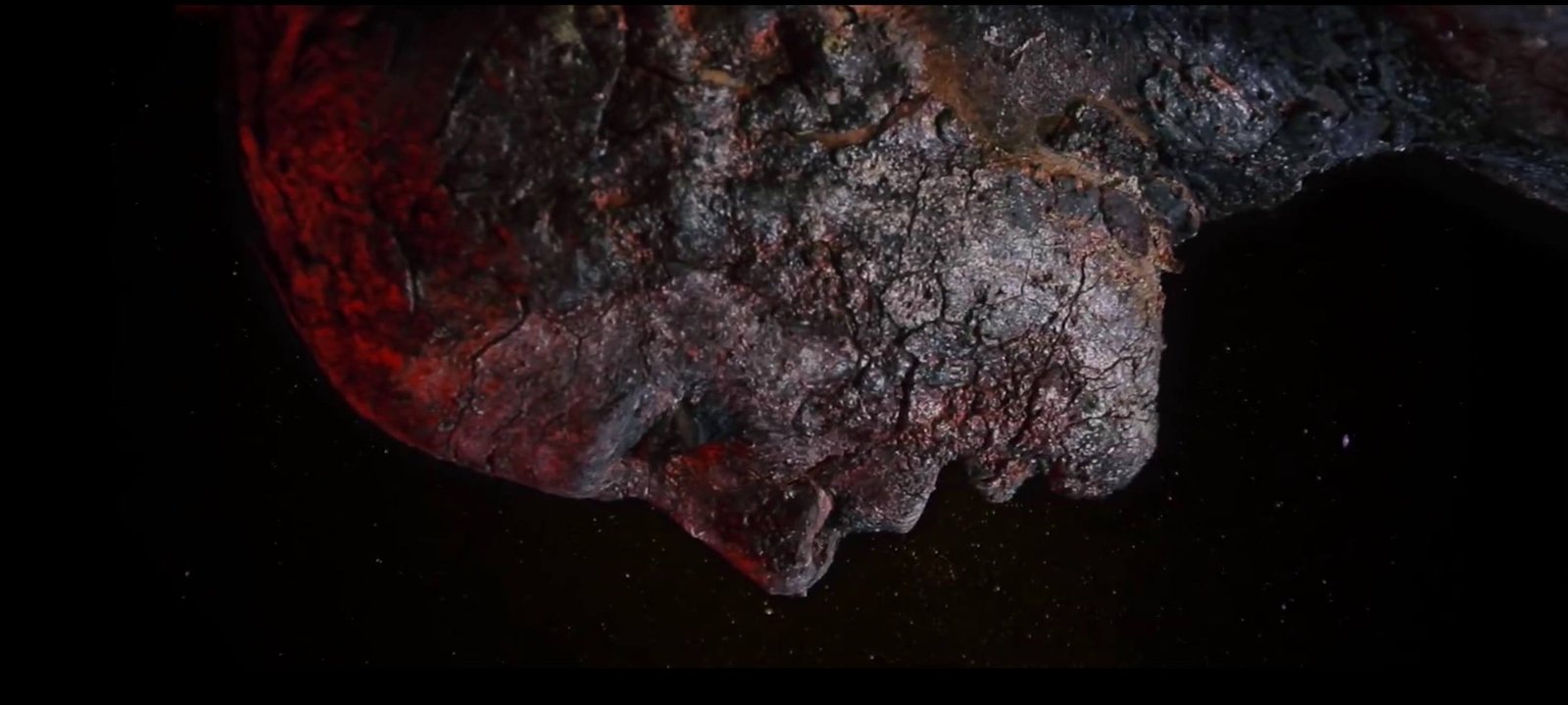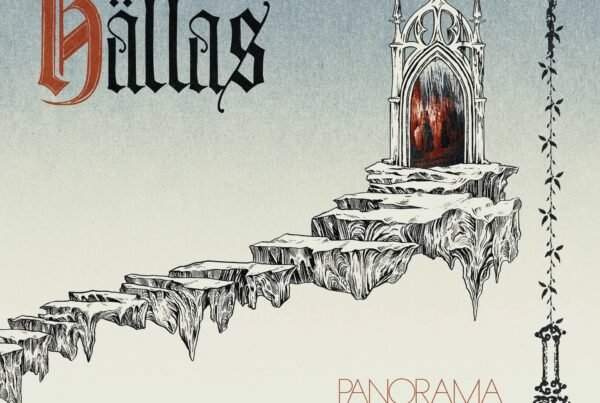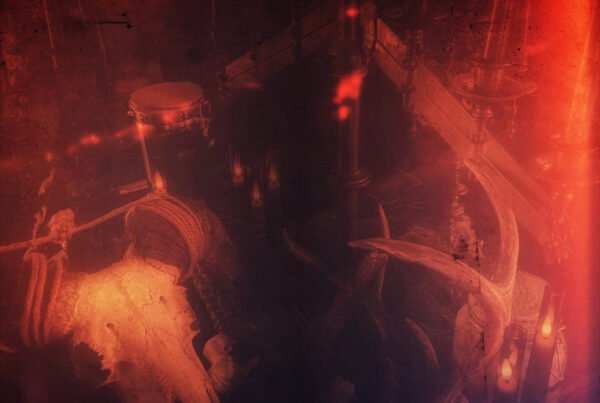The Ocean return with Phanerozoic I: Palaeozoic, a beautifully crafted album that is not only emotionally rich in its lyrics and composition, but also one that delivers heavy post-metal in a way only these titans of the genre can.
Release date: November 2, 2018 | Metal Blade Records/Pelagic Records | Facebook | Bandcamp
Without a doubt, The Ocean‘s Phanerozoic I: Palaeozoic is one of the most sought-after records of 2018; many in the progressive metal and post-metal communities have no doubt been hankering for it since its announcement. Following up their 2013 record Pelagial was always going to be tough, but the progression the community saw in their 2015 split with Mono (Transcendental) bode well for a successful next outing. With the band back from five years of touring, and having added Peter Voigtmann on synths to their ranks, they are unleashing Phanerozoic I: Palaeozoic upon us on November 2, 2018.
What makes this record even better and even more exciting is that it is only the first of a two-parter. In this part, the band conceptually explore the 289 million-year period in which animal life blossomed and was subsequently crushed by three extinction events, the final one highlighted in the bands first single from the record, “Permian: The Great Dying”. As with many anticipated records on Everything Is Noise, we like sharing the burden of critique. We’ll hear Tim’s expert opinion on the record as well as my own, so without further ado, please join us on this brilliant journey through time and sound.
Tim’s Thoughts
Someone once described The Ocean as being as entertaining as they are educational, and measured by the themes of their concept records, it isn’t hard to see why. Phanerozoic I: Paleozoic (try saying that three times in a row) sees them continuing the atmospheric post-metal style which made them popular in the first place. If its title wasn’t a dead giveaway for the content of the album already, the record discusses the time period known as the palaeozoic age.
“The Cambrian Explosion”, the first track on the record, sets up the ambience you will experience while listening through the record. Detuned synths, lush ambient swells, and droning sub-bass lines make this song sound like the intro to a dystopian sci-fi thriller. Immediately after “The Cambrian Explosion” comes to a conclusion, “Cambrian II – Eternal Recurrence” comes on, continuing on the exact same note its predecessor ended on. It may seem like a small detail, but this helps the songs flow immensely, and I appreciate these tiny nuances for making the record feel cohesive from start to finish.
This time around, a massive, roaring guitar and bass riff builds the leitmotif of this modern post-metal monument. It’s such an abrupt and violent change you can’t help but clench your fist out of the pure rush of energy this song will undoubtedly give you. The vocals change between biting fry screams and modulated cleans, reminding me slightly of Cynic‘s vocal style, and the constant change between clean and massively distorted instruments keeps you on the edge of your seat, while also acting as a cushion to not tire your ears with a constant onslaught of pummeling low end.
The band find one of their most organic pieces in “Devonian – Nascent”, a long, almost three-minute introduction consisting of post-rock instrumentation, little use of electronic ambience, and mellow clean vocals. As the song moves on from this melancholic-sounding state, it dives deeper into sludgy distortion, culminating in a massive breakdown with excellent drum work to keep things interesting.
While I love The Ocean‘s discography, I think this is their best effort to date. In a year filled to the brim with well-written, engaging post-metal and sludge, The Ocean still stand out as a force of nature no one can compare to. Meticulously crafted songs, dynamic playing, and progressive song structures make this album greater than the sum of its parts. An abrasively brutal diamond dug up by the archaeologists of The Ocean.
Pete’s Thoughts
Phanerozoic I: Palaeozoic stands alone this year for me in amongst the plethora of wonderful albums we’ve been blessed with, but certainly not in quality alone. This album makes me feel things that no others have, potentially due to the deep dive I’ve had into the concept, but mainly due to the phenomenal craftsmanship that has gone into the experience of the record. For me, it is sonically perfect. There isn’t a thing I’d change about it, and I think the long wait, whilst difficult, has more than been worth it. As alluded to earlier, I paired Palaeozoic with a book – The Sixth Extinction by Robert Leakey – that follows the same themes as the record, that of eternal recurrence and what will happen if humanity continues its ruinous course of action against the rock sustaining us.
Opening the album, we’re immediately introduced to The Ocean‘s new analogue synths player, Peter Voigtmann, who had been their live lighting expert for the last five years. Thick, rich bass and effects hit the listener, and you’re immediately transported to another realm. “The Cambrian Explosion” evokes images of rapid cellular mutation, just like the huge explosion of life during this 30 million-year period. After this soft introduction, we’re thrusted into “Cambrian II: Eternal Recurrence” and the explosion you might’ve expected from the first song. Huge thundering guitars, Robin Staps’ timeless post-metal riffing, atmospheric effects, and titanic drums collect to welcome you to the album with a salvo you’ll be reliving over and over.
It is hard to say something on the record is fundamentally better than on Pelagial, but you’ll find the sound much richer in Palaeozoic, and that extra layer does so much for the sound, as does the spectacular tuning of the instruments. Later, in “Cambrian II”, you’ll hear the growl of the bass in all its glory before getting to one of the many highlights on this album. The climax of part two is amazing, the wonderful vocals of Rosetti playing off of the epic post guitars and rich synths in a moment of music I’ll treasure for years to come.
Probably my favourite tone of the year exists in the next song, “Ordovicium: The Glaciation of Gondwana”. After vocals reminiscent of Heliocentric in some parts and Anthropocentric in others, the instruments take the lead for a doomy instrumental segment that thankfully reoccurs for a second time later in the song. The Ocean let the notes hang in spectacular fashion, with jarring guitar chords to snap you back out of the daze the huge tones put you under. The theme of eternal recurrence is one that the band utilise well in their music. Often you will hear reprisals of sounds within songs, even though the music has taken a completely different tangent to its original vector. This fits in nicely with the message the band are trying to convey in the record:
‘Nietzsche’s concept is that everything happens over and over again, an infinite amount of times throughout infinite time and space. When you look at Earth’s history you find a lot of evidence for this: continents have collided and drifted apart across the oceans and collided again, life nearly disappeared various times but then resurged again… this album is essentially about time, perception of time, and repetition.’
In a similar way to Pelagial, the record feels (certainly during “Devonian – Nascent”) as if you were being submerged deeper and deeper into the depths of the band’s psyche, with the music becoming even more absorbing and overwhelming than before. This track feels heavily influenced by Cult Of Luna, and again draws on emotional vocals to keep the listener immersed in its melodies. Following it, “The Carboniferous Forest Collapse” almost relieves us of this heavy burden by returning to a lighter post-metal soundscape before we finish up on “Permian: The Great Dying”. It is not hard to see why the band picked this song as a single; it is much lighter than the middle of the album as a whole, yet still offers the entire range of their sound. Again the drums play a key part, and Rosetti’s heavy vocals are brilliant. One of my favourite moments comes when overlaid vocals form to create a psychotic atmosphere that knocks you off kilter.
When I first heard the song, it felt very fresh and original to me, but after thirty or so playthroughs of the album, “Permian” (and the other songs on the album for that matter) all seem familiar, and will certainly keep old fans more than happy. It is a perfect gateway to their sound for those who haven’t yet experienced their discography, and I’m sure it’ll attract listeners from the doom community too. I’m not going to try and conclude on whether Phanerozoic I: Palaeozoic is better than Pelagial; I love them both equally, because they are both perfect records. I only wish that 2020 wasn’t being touted as the date for part two, but I’ll abide by catching them on tour multiple times in the next year.






